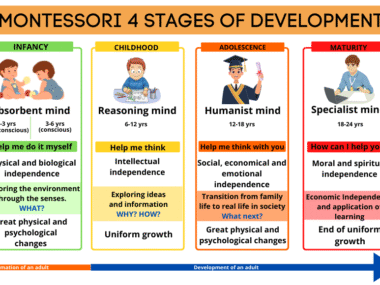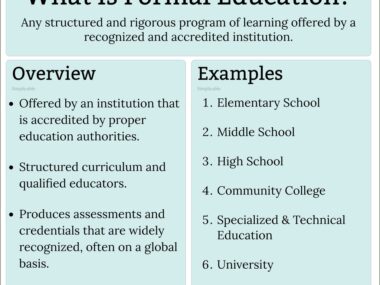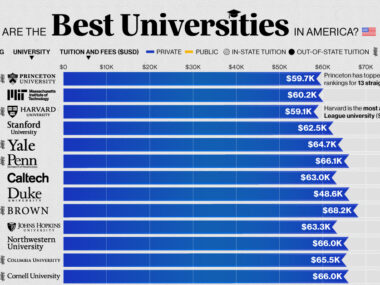How to Apply for Scholarships as an International Student
scholarship is a game changer for every student who wants to study without breaking the bank and in this article we are going to delve into how to apply as an Internationa student.
Benefits of Applying for Scholarships
As an international student, financing your education abroad can be a significant challenge. This is where scholarships come in to ease your financial burden. Applying for scholarships not only provides financial assistance but also offers several other benefits.

Firstly, scholarships can help you stand out in a competitive applicant pool. Many universities and organizations value students who have demonstrated academic excellence, leadership skills, and community involvement. By receiving a scholarship, you are highlighting your achievements and showing that you are a deserving candidate.
Secondly, scholarships can provide you with unique opportunities and experiences. Some scholarships come with additional benefits such as mentorship programs, internships, or study abroad opportunities. These experiences can enhance your education and broaden your horizons, making you a well-rounded individual.
Lastly, scholarships can boost your confidence and motivation. Being awarded a scholarship is a recognition of your hard work and dedication. It can serve as a reminder that you are capable of achieving your goals and can inspire you to excel in your academic journey.
By understanding the benefits of scholarships, you can approach the application process with enthusiasm and determination.
Types of Scholarships Available for International Students
Before you start your scholarship application journey, it’s essential to be aware of the different types of scholarships available to international students. Here are some common types of scholarships:
- Merit-Based Scholarships: These scholarships are awarded based on academic achievement, leadership qualities, extracurricular activities, and other merits. They recognize students who have excelled in their studies and demonstrated exceptional skills.
- Need-Based Scholarships: These scholarships are awarded to students who demonstrate financial need. They aim to provide financial assistance to those who may not have the means to fund their education abroad.
- Country-Specific Scholarships: Some countries offer scholarships specifically for international students from certain countries. These scholarships are usually funded by the government or educational institutions of the host country.
- University-Specific Scholarships: Many universities have their own scholarships for international students. These scholarships may be based on academic merit, leadership potential, or other criteria set by the university.
- Organization-Specific Scholarships: Various organizations, both non-profit and private, offer scholarships to international students. These scholarships may be industry-specific, aimed at promoting diversity, or aligned with the organization’s mission.
Understanding the different types of scholarships available will help you narrow down your search and find the ones that best suit your needs and qualifications.
Researching and Finding Scholarship Opportunities
Once you have a clear understanding of the types of scholarships available, it’s time to start researching and finding the right opportunities. Here are some strategies to help you in your search:
- Start Early: Scholarship application deadlines can vary, so it’s crucial to start your research well in advance. By starting early, you give yourself ample time to find suitable scholarships and gather all the required materials.
- Utilize Online Resources: There are numerous websites and online platforms dedicated to listing scholarship opportunities for international students. Use these resources to search for scholarships based on your field of study, country of origin, or other relevant criteria.
- Check with Universities: Visit the websites of universities you are interested in and explore their scholarship programs. Many universities provide detailed information about the scholarships they offer, including eligibility requirements and application procedures.
- Network and Seek Recommendations: Reach out to your professors, advisors, or other professionals in your field who may have access to scholarship opportunities. They may be able to recommend scholarships that align with your goals and qualifications.
- Local and National Organizations: Research organizations in your home country and host country that offer scholarships to international students. These organizations may have specific requirements or preferences, so make sure to review their criteria before applying.
Remember, scholarship opportunities are constantly changing, so it’s essential to regularly check for new opportunities and stay updated with any changes in application deadlines or requirements.
Understanding Scholarship Requirements and Eligibility Criteria
Once you have identified potential scholarship opportunities, it’s crucial to thoroughly understand the requirements and eligibility criteria before proceeding with your application. Here are some key factors to consider:
- Academic Requirements: Scholarships often have minimum GPA or academic achievement criteria. Make sure you meet the required academic standards before applying. If you don’t meet the criteria, consider improving your grades or seeking other scholarship opportunities.
- Language Proficiency: Some scholarships may require proof of English language proficiency, such as TOEFL or IELTS scores. Ensure you have the necessary language qualifications or consider taking language proficiency tests if required.
- Specific Field of Study: Some scholarships are available only to students pursuing specific fields of study. Ensure that your chosen field of study aligns with the scholarship’s requirements before investing time in the application process.
- Nationality or Country of Residence: Some scholarships are exclusively available to students from specific countries or regions. Review the eligibility criteria to ensure you meet the nationality or country of residence requirements.
- Financial Need: If you are applying for need-based scholarships, you may be required to provide documentation proving your financial need. Understand the financial documentation requirements and gather the necessary information.
By understanding the requirements and eligibility criteria, you can focus your efforts on scholarships where you have the highest chances of success.
Tips for Writing a Compelling Scholarship Application Essay
One of the crucial components of a scholarship application is the essay. It provides an opportunity for you to showcase your personality, achievements, and aspirations. Here are some tips to help you write a compelling scholarship application essay:
- Understand the Prompt: Read the essay prompt carefully and ensure you understand what is being asked. Take note of any specific questions or themes that you need to address in your essay.
- Tell Your Story: Use the essay as a platform to share your personal journey, challenges you have overcome, and aspirations for the future. Make it unique and authentic to stand out from other applicants.
- Highlight Your Achievements: Emphasize your academic achievements, leadership roles, community service, and any other relevant accomplishments. Show how these experiences have shaped you and your goals.
- Demonstrate Your Passion: Clearly convey your passion for your chosen field of study or area of interest. Share why you are passionate about it, how it aligns with your career goals, and how receiving the scholarship will help you make a difference.
- Be Concise and Well-Structured: Write concisely and avoid unnecessary repetition or clichés. Structure your essay in a logical manner, with a clear introduction, body paragraphs, and conclusion.
- Edit and Proofread: Revise your essay multiple times to ensure clarity, coherence, and grammar accuracy. Ask a trusted friend, family member, or mentor to review your essay and provide feedback.
Writing a compelling scholarship application essay requires time and effort, but it is a crucial step in making a strong impression on the scholarship committee.
Gathering and Preparing Supporting Documents
In addition to the application essay, scholarships often require supporting documents to validate your qualifications. Here are some common supporting documents you may need to gather:
- Transcripts: Provide official transcripts from your previous educational institutions to demonstrate your academic performance.
- Letters of Recommendation: Request letters of recommendation from professors, mentors, or employers who can speak to your abilities, achievements, and potential.
- Resume/Curriculum Vitae: Create a comprehensive resume or curriculum vitae highlighting your education, work experience, extracurricular activities, and any relevant achievements.
- Proof of Language Proficiency: If required, provide official language proficiency test scores, such as TOEFL or IELTS.
- Financial Documentation: For need-based scholarships, gather the necessary financial documents to support your application, such as bank statements or tax returns.
Ensure that all your supporting documents are up-to-date, accurate, and neatly organized. Make copies of all documents for your own records.
Submitting Your Scholarship Application
Once you have completed all the necessary application components, it’s time to submit your scholarship application. Here are some steps to follow:
- Review the Application: Carefully review your scholarship application to ensure you have completed all the required sections and attached all the necessary documents.
- Follow Application Instructions: Pay attention to any specific submission instructions provided by the scholarship provider. Submit your application through the designated platform or method specified.
- Double-Check Deadlines: Ensure you submit your application before the deadline. Late applications are often not considered, so it’s crucial to adhere to the provided timeline.
- Keep a Record: Make copies or take screenshots of your submitted application for your records. This will serve as proof of submission and can be helpful in case of any discrepancies or inquiries.
Remember, submitting your scholarship application is just the beginning. It’s important to follow up and stay engaged throughout the selection process.
Following Up on Your Scholarship Application
After submitting your scholarship application, it’s essential to stay proactive and follow up on your application status. Here are some steps you can take

- Acknowledgment: If you receive an acknowledgment email or notification after submitting your application, take note of any further instructions or updates mentioned.
- Patience: Scholarship selection processes can take time, so be patient and avoid sending multiple inquiries about your application status.
- Contact the Scholarship Provider: If you haven’t received any communication after a reasonable amount of time, consider contacting the scholarship provider to inquire about the status of your application. Be polite and concise in your communication.
- Pursue Other Opportunities: While waiting for a response, continue to search for other scholarship opportunities and explore alternative funding options. Don’t put all your eggs in one basket.
Remember, receiving a scholarship is not guaranteed, and it’s important to have backup plans in case your application is not successful. Stay positive and keep pursuing your goals.
Conclusion and Final Tips for Scholarship Success
Applying for scholarships as an international student can be a challenging yet rewarding experience. By following the steps outlined in this guide, you are well-equipped to navigate the scholarship application process successfully. Here are some final tips to keep in mind:
- Start Early: Give yourself ample time to research, prepare, and submit your scholarship applications. Starting early increases your chances of finding suitable opportunities and submitting high-quality applications.
- Be Selective: Rather than applying for every scholarship you come across, focus on those that align with your goals, qualifications, and financial needs. Quality over quantity.
- Seek Guidance: Reach out to professors, advisors, or mentors for guidance and support throughout the scholarship application process. Their insights and recommendations can be invaluable.
- Be Authentic: Present your true self in your application materials. Scholarship committees appreciate genuine stories and unique experiences.
- Stay Organized: Create a system to keep track of scholarship deadlines, requirements, and application progress. Being organized will help you stay on top of your applications and avoid missing any important details.
Remember, applying for scholarships requires perseverance, dedication, and resilience. Even if you face rejections along the way, don’t give up. Keep refining your application materials, seek feedback, and continue searching for new opportunities.
By following the advice and strategies outlined in this guide, you can increase your chances of securing scholarships and making your dream of studying abroad a reality.










